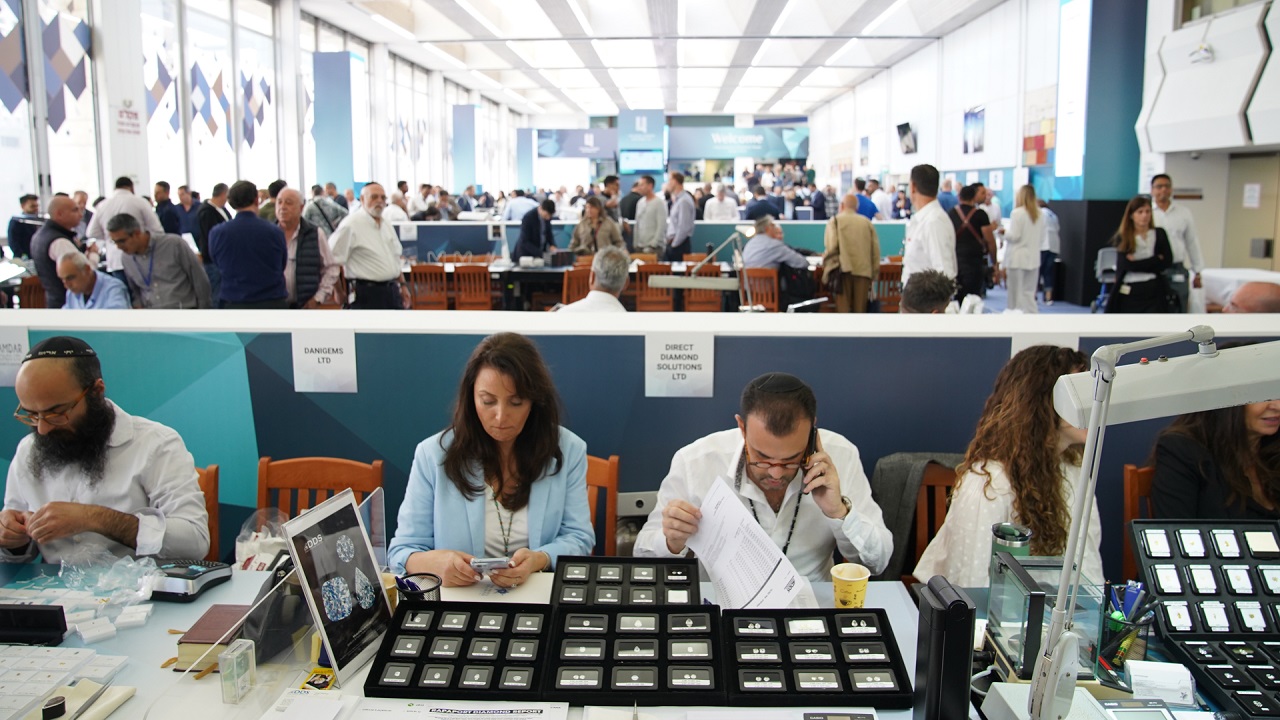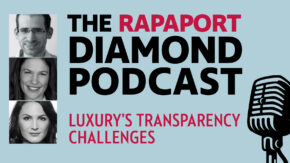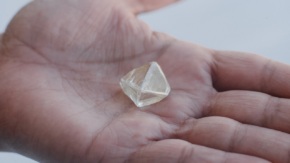October 7 was supposed to be a joyous day for Boaz Moldawsky, president of the Israel Diamond Exchange (IDE). His daughter gave birth at 11 p.m. the night before. The Hamas attack on Israel started early the next morning.
Moldawsky was in Tel Aviv when it all kicked off. As many did, he brushed off the first rocket siren at 6:30 a.m. as an ordinary warning that happens from time to time. Within a few hours, it became clear that something more serious was happening.
“At the beginning, nobody thought it was something so big,” Moldawsky says. “But after a few hours, we saw the catastrophe.”
While the rockets continued over Tel Aviv, deadly massacres were taking place in southern Israel, with 1,200 estimated to have been killed and around 250 taken hostage.
One IDE member, Isaac Siton, manager of Grandview Klein Diamonds’ Namibia factory, was murdered, while several others lost relatives. The events kicked off a war that is still ongoing.

Business effects
The immediate impact on business was also considerable, Moldawsky notes.
“In the beginning, since the war began, there were two or three weeks when the market in Israel was paralyzed, completely paralyzed,” he describes. “There [was] no…option to send goods into Israel and out of Israel. Only one airline, El Al, was operating, and [it was not] going to all our destinations [needed for shipments].”
Before the war, most diamond shipments in and out of Israel went with foreign airlines, explains Ophir Gore, Israel’s diamond controller, who regulates the sector. These canceled their flights, forcing businesses to switch to El Al, the Israeli carrier, Gore says.
The market started returning to normal operations around three weeks after October 7, Moldawsky estimates. However, buyers stopped visiting Israel and have not returned — though there was hardly a mass of overseas clients in the bourse before the war, given the weak market. The annual International Diamond Week in Israel (IDWI), scheduled for early April, has been canceled, as hotels in Tel Aviv are full of people evacuated from the more dangerous southern and northern parts of Israel.
Moldawsky says there was no impact on relationships with clients in Arab countries. (One Israeli trader who spoke with Rapaport News said two clients from non-Arab countries had decided to cease dealing with him, but the IDE said it had not heard of any such cases.)
“In other industries it might be a problem, but in the diamond industry there is no problem,” Moldawsky adds. “We have a good connection with the companies [we work with]. Usually, it’s very personal relations. They are supporting us, and they say they are worried about us.”
Four months since the Hamas onslaught, sentiment in the Israeli diamond trade is weak. But this is mainly because of the slowdown in sales to US and China and the uncertainty about polished prices. Moldawsky estimates that around 80% of the Israeli trade’s current difficulties result from the global slump in the diamond market and 20% from the war.
Israel’s polished exports plummeted 93% year on year to $11.7 million in December 2023 on a net basis — after deducting returned goods — according to data from the Ministry of Economy and Industry. That rounded off a negative year in which the country’s polished exports fell 25% to $2.91 billion. The trend eased in January 2024, with shipments dropping 21% year on year to $253.6 million.
“We had this problem [of the global downturn], and then on top of that, our problem,” he continues. “The situation is not so good, but as always, we try to be optimistic, try to find solutions. We never give up.”
Short and long term
The government offered the industry help, for example by extending its compensation scheme to diamond businesses after the sector was initially excluded, Moldawsky notes.
In the longer term, the IDE’s efforts to support the industry include campaigning for a “free zone” at the bourse in Ramat Gan that would enable foreign companies to transact with locals tax-free.
The IDE also plans to knock down and redevelop some of the buildings it owns in the area around the bourse, creating opportunities to sell or rent real estate and feed the revenues back to bourse members. Moldawsky — whose company, Moldawsky Group, has interests in diamonds, real estate and hi-tech — hopes all the construction licenses will be ready in about a year.
However, the war has slowed some of these projects somewhat.
“If you’re working with governmental offices, [then] at a time of war they have less time to listen to other things,” he observes. “Everybody’s concentrating on the war. So things might be taking a lot more time than usual.”
Main image: Participants at the Israel International Diamond Exhibition in March 2023. (Three Photographers)
Stay up to date by signing up for our diamond and jewelry industry news and analysis.



